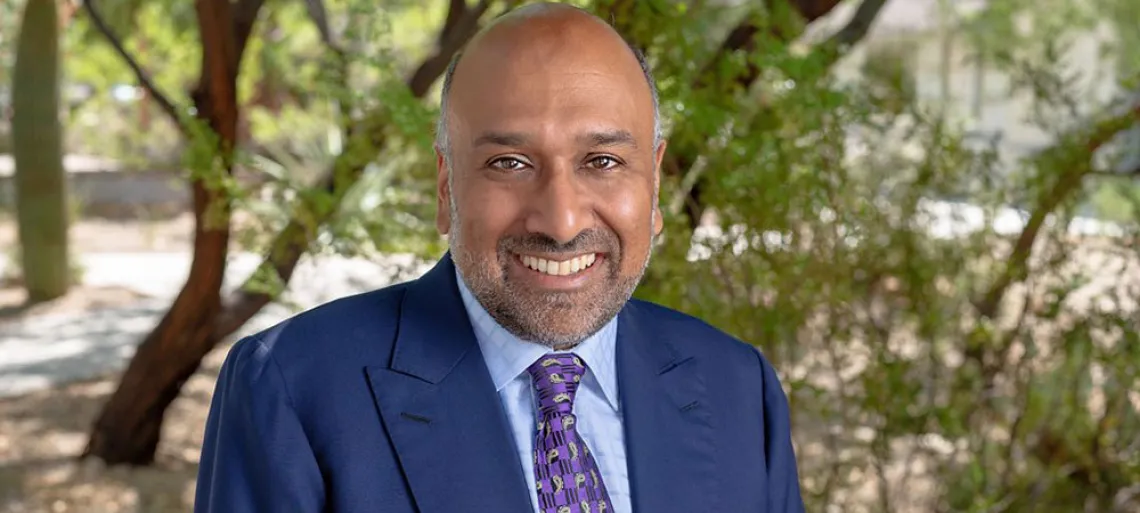Gautam Gowrisankaran, Arizona Public Service Professor of Economics
Eight Questions with Gautam Gowrisankaran

"Two of my biggest areas of research are the economics of healthcare markets and environmental and energy economics. The research questions help inform the impact of policies on some of the most crucial challenges of our time."
What brought you to the Eller College?
The economics department has a strong research presence in my field of industrial organization.
How long have you been at Eller?
Over ten years now. I moved here in 2007.
What is your current research, and what most excites you about that area of focus?
I’m working on lots of topics. Too many topics to be honest! But, I’m excited about all of them (which is why I’m working on so many).
Two of my biggest areas of research are the economics of healthcare markets and environmental and energy economics. Specifically, I’m working on research questions such as understanding how narrow network health plans help lower healthcare costs and the productivity impacts of pollution regulation in China. These research questions are all super important, as they help inform the impact of policies on some of the most crucial challenges of our time.
What are you currently teaching, and what do you most enjoy about teaching?
I am currently teaching an Executive MBA class on strategy and a doctoral class on the econometrics of dynamic industrial organization models. They are such different classes and I love teaching them both! EMBA students are (very talented) consumers of the knowledge that we create while PhD students need to understand how to further develop this knowledge. Helping on both dimensions is really fun. Much of my PhD teaching involves helping students learn how to use frontier methods and data to better answer research questions. There has been an explosion of the availability and use of data in economics over the past 20 to 30 years and I am happy to be part of this emerging area of inquiry.
How do you bring your research into your teaching?
Broadly speaking, my research is about how policies and firm decision making affect outcomes. This research is hugely important in both the classes I mentioned. E.g., if I am teaching EMBA students a case about Coke and Pepsi, I am trying to develop the concepts of when competitors might be helpful to a business. This in turn requires understanding models of competition, advertising and experience goods, all of which relate to my research. In a PhD class, I focus on the methods that students will need to learn to become independent scholars at the frontier. It goes without saying that if I did not know frontier research methods, I could not effectively teach this class.
You were awarded an honorary doctorate this summer. Tell us about that.
Beyond research and teaching, what are your passions?
I have three kids which limits my time for other passions besides work! However, I love skiing, as does the whole family. I also love biking and running, reading, playing and listening to classical music, traveling, and learning languages.
What does the Eller Experience mean to you?
It means that we must engage students by integrating our core competencies of research and teaching to add value to our students.

